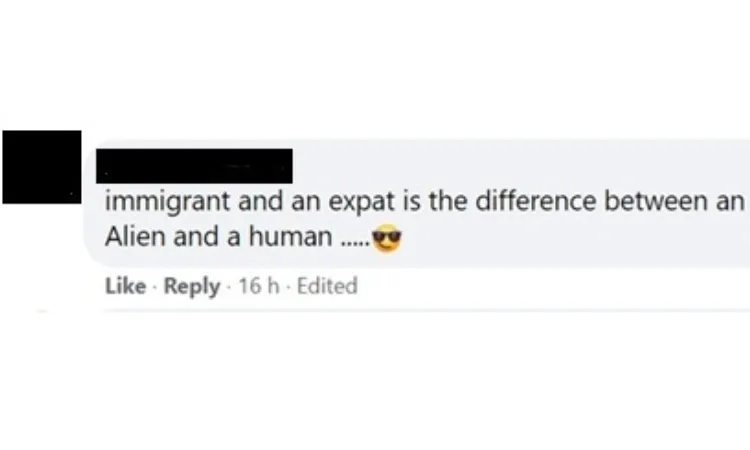Part 2 The subjective nature of labels: "Racism knows no borders"
The term ‘migrant’ acts as an umbrella term that encompasses different categories, such as refugees, asylum seekers, immigrants and expats. However, these categories are not neutral, but deeply rooted in societal and legal power structures.
The power of labels
A conversation on social media underscores this point. When a group member asked about the distinction between an ‘immigrant’ and an ‘expatriate’, participants immediately offered explanations based on a person’s salary, ethnicity or religion. One participant noted: “A European worker in Africa is an ‘expat’, which sounds nice, while an African worker in Europe is an ‘immigrant’, which sounds less nice. Racism knows no borders.”

Photo taken by Judith van Uden of an online discussion.
Power imbalances
More than once, respondents corrected my use of the term ‘migrant’ and insisted that I call them ‘expats’. This distinction is not just semantic; it points to a power imbalance. The term ‘expat’ conjures up images of a welcome, high-ranking employee, while ‘immigrant’ often has connotations of economic burden, illegality, and cultural difference. This division illustrates how language reinforces hierarchical structures in society, whereby some migrants are seen as worthy and others as unworthy.
Bias in migration research
Although migration research in Morocco is becoming increasingly diverse, the dominant empirical focus remains on migrants from Sub-Saharan Africa with an irregular status, thus contributing to the beforementioned public perception. This narrow perspective ignores the experiences of migrants with a regular status – those who work, study or retire in Morocco. To challenge the prevailing stereotype, I conducted interviews with a diverse group of migrants, varying in administrative status, as well as in their work and educational backgrounds.
Intersectionality
An intersectional analysis—an analysis that goes beyond legal categories such as nationality or administrative status—emphasizes the importance of other factors such as identity markers and networks in shaping a migrant’s social positioning. This perspective helps me better understand how ethnicity, class, and other markers shape one’s place in the global migration system.


